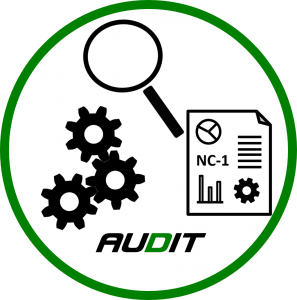Remote Auditing Webinar
 In response to substantial demand & addressing a significant need in the industry, I recently was part of a webinar put on by IEMA on remote environmental auditing.
In response to substantial demand & addressing a significant need in the industry, I recently was part of a webinar put on by IEMA on remote environmental auditing.
This was for IEMA’s “Adapting to COVID-19” series, helping environmental professionals adapt to new ways of working during the lockdown & beyond.
I was part of the panel of experts, reflecting on my experiences of running remote audits – the benefits & pitfalls, plus also how to prepare.
The webinar was chaired by Nigel Leehane, an experienced auditor & consultant. Myself & Neal Barker of WSP gave the auditor’s perspective, and we heard from the auditees: Nigel Sagar of Skanska & Matthew Goldberg of National Grid. We were also joined in the Q&A by Paul Greenwood of UKAS.
Remote Auditing – The Key Points
The key points I shared, from an auditor’s point of view included:
Test the technology – new systems, connectivity, security restrictions.
Firstly – technology: Zoom, Teams, facetime, whatsapp. Does it work (for both parties)? Do a practice run, test at different times of the day/parts of the site. Are there security issues to consider?
It’s important to trust the technology – although we do realise we’re all learning now.
Scheduling important – agree in advance timings, who, scope.
Scheduling is important so time & opportunity aren’t wasted. Get the agenda agreed well in advance to overcome scheduling issues – what to cover, with whom & when. May be an issue with staff that are working from home or even furloughed & not available. That helps us auditors prepare too.
Operational control may be delayed to later audit if can’t see the site.
Most people are concerned about observing activities on site. Again – Agree the Scope. Operational control may need to be delayed to later audit if we can’t see the site.
Access to docs & records.
Is there good access to documents & records? There may be problems with checking for evidence – especially paper records.
Getting a good rapport with auditees – difficult to get the best info / detail / co-operation.
To get the best from people, auditors need to have a good rapport with them – for all the detail, their cooperation & their support for the audit. If we’re remote, it’s more of a challenge to put people at ease. It’s important to spend time with them, as needed.
Restricted communication – body language, subtleties.
Similarly, we can miss out on subtle cues – body language, tone etc.
There are challenges, but also opportunities – for us to improve how we work.
The biggest issue for the auditor is to gather good quality evidence to support the audit findings – we’ll need to use all of our skills in preparation, communication & cooperation so that the audit goes smoothly.
During the webinar we had 3 polls to try to understand the audience’s experience & views of the remote auditing. The results show the definite need for education on how to conduct remote audits, their usefulness now during the Covid-19 period & also in the longer term.
Q1: Have you been involved in the delivery of remote audits?
Yes, and an auditor: 24%
Yes, as an auditee: 9%
Yes, as an auditor and auditee: 11%
No: 57%
Q2: What is the greatest barrier to Remote Auditing?
Lack of suitable technology (webcams etc): 10%
Insufficient remote audit experience: 28%
Poor internet connection: 12%
Lack of management / staff support: 14%
Perception of Remote vs On-site Audits: 36%
Q3: What is the most important benefit from Remote Auditing?
Travel and time savings: 47%
Less intrusive for site-based staff: 6%
Meets reduction in GHG and carbon targets: 18%
More rapid deployment of Remote Audits: 12%
Reduced exposure to on-site hazards and risk: 16%
Remote Auditing webinar recording
IEMA members can access a recording of the webinar here. The slides are also available
I’m pleased to say we not only had excellent attendance (over 400 people) but also some great feedback. For example, this is what Eddie Bell of the Environment Agency said: “That has been one of the most productive hours I have spent in these lockdown times. I really appreciated hearing the experiences of auditors and auditees who have already applied remote auditing techniques.”
Clearly this is a new subject to many & I was very pleased to be leading on this, to help both my clients & many environmental professionals improve.
Note: IEMA is the Institute of Environmental Management & Assessment.
I have been a member of IEMA for over 20 years, progressing through the ranks up to Fellow.
I sit on the Environmental Auditing committee, currently reviewing the auditor registers & developing CPD opportunities.
_____________________
Liked this post? Sign up for the Eshcon Newsletter.

